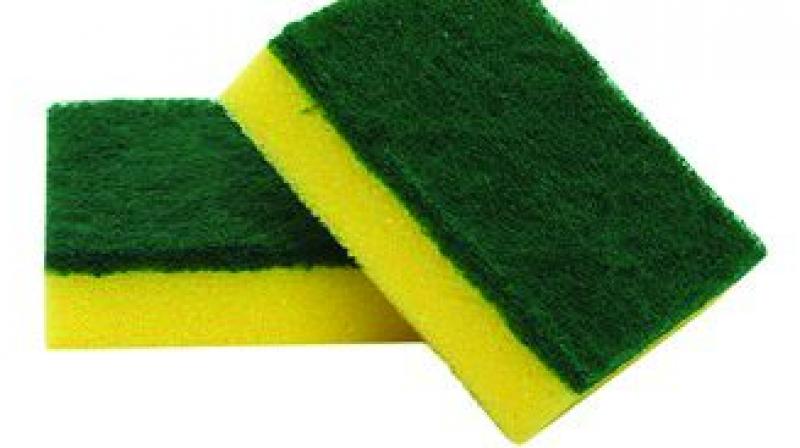Dump that dish scrubber before you fall ill

Hyderabad: Waiting for your dish sponge to wear out before disposing of it is probably not the wisest decision. According to a new piece of research, it is advisable to change the sponge every week. The infrequent replacement of dish sponges could cause of bowel diseases such as diarrhoea and typhoid.
A study conducted by a group at the University of Furtwangen in Germany has revealed that nearly 8,200 crore bacteria are found in a sugar cube sized piece of dish sponge. This is much more than the density of microbes found in a toilet.
The study has identified 362 varieties of bacteria in samples procured from 14 different sponges. Microbiologists attribute this accumulation of bacteria to the food, water and warmth found in a kitchen, which presents an ideal environment for the survival of bacteria.
Ms Surkit Kaur, a microbiologist, said, “Foods such as wheat, flour, and oil are heaven for the bacteria. Since the sponge comes in contact with all of this, it’s obvious that some part of the food gets wedged in the sponge and makes it a hotspot for the breeding of bacteria.”
The food allows the bacteria to thrive despite the chemicals in dishwashing soap. The study indicates that attempts at cleaning the sponge by sterilising or heating it are of little use. In fact, such measures cause pathogens, or disease causing bacteria, to preferentially breed.
Dr Jayant Bhanushali, a microbiologist, points out that the outcomes of this study cannot directly be translated to the Indian context, as Germany is a much colder country, where bacteria take longer to grow.
“In a country like India, where the mean temperature is 30º to 35º Centrigrade, the chances of bacterial growth are much higher,” he said.
He said that since Indians are exposed to such filth for almost their whole lives, they are likely to escape bouts of typhoid and diarrhoea caused by sponge-hosted bacteria.
The study suggests that dish sponges should be replaced every week, in order to check the build up of bacteria.

